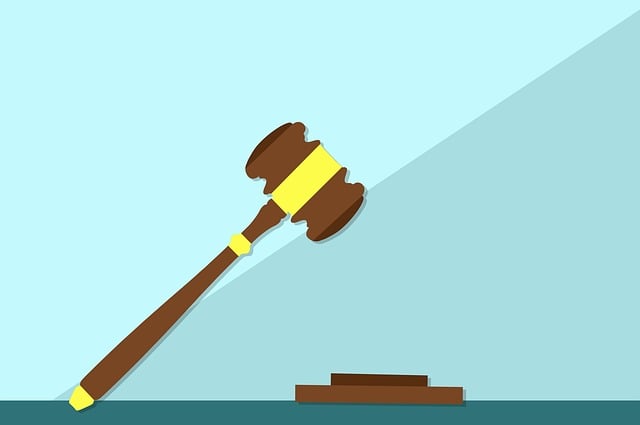Financial crimes present significant challenges due to their intricate nature, international reach, and advanced technology. Overcoming these obstacles requires leveraging advanced analytics, international collaboration, and specialized legal expertise to meet the burden of proof in court. The digital age introduces new complexities, demanding strict protocols and expert testimony for effective prosecution and defense strategies. Courtroom prowess is crucial, involving meticulous case preparation, witness interviewing, and navigating legal frameworks to secure favorable outcomes.
In the intricate world of finance crime probes, understanding the nuances of financial crimes is just the first step. This article delves into the multifaceted challenges—from evidence collection and presentation to legal defenses and technological advancements. We explore strategies for navigating complex scenarios, particularly focusing on overcoming the burdens of proof in court. By examining these aspects, we aim to equip professionals with insights into effective courtroom representation in an era marked by evolving technologies and stringent legal barriers.
- Understanding the Complexities of Financial Crimes
- Challenges in Collecting and Presenting Evidence
- Legal Barriers: Defending Against Accusations
- Technological Advancements in Proof Collection
- Strategies for Effective Courtroom Representation
Understanding the Complexities of Financial Crimes

Financial crimes are intricate and diverse, presenting unique challenges for investigators and prosecutors due to their complex nature. These crimes often involve sophisticated schemes, international borders, and advanced technology, making it difficult to gather evidence and establish liability. One of the primary complexities arises from the need to meet the burden of proof in court. This requires a meticulous process of gathering, preserving, and presenting irrefutable evidence throughout all stages of the investigative and enforcement process.
The challenges in meeting this burden are significant, especially when dealing with financial transactions that can be easily altered or traced through various routes. Prosecutors must navigate an unprecedented track record of ever-evolving fraud methods, requiring a deep understanding of both traditional and emerging crime patterns. By leveraging advanced analytics and collaborating across jurisdictions, legal professionals can uncover hidden networks and hold perpetrators accountable, ensuring justice is served despite these intricate complexities.
Challenges in Collecting and Presenting Evidence

Finance crime probes face significant challenges when it comes to collecting and presenting evidence, especially in meeting the burden of proof in court. One of the primary difficulties is the intricate nature of financial transactions, which can leave a trail of complex data and digital footprints that require specialized expertise to interpret. This complexity often delays investigations, as analysts and investigators must sift through vast amounts of information to identify relevant and admissible evidence.
Moreover, financial crimes are frequently committed over extended periods, involving numerous parties and jurisdictions. This creates an unprecedented track record of transactions, making it challenging to establish a direct causal link between suspect activities and the alleged crime. Despite these hurdles, robust investigative techniques, including advanced data analytics and international cooperation, have proven effective in uncovering fraud schemes. The successful prosecution of financial crimes hinges on thorough documentation, meticulous analysis, and a comprehensive understanding of all stages of the investigative and enforcement process.
Legal Barriers: Defending Against Accusations

In finance crime probes, one of the significant challenges for prosecutors is the white collar and economic crimes defendant’s ability to mount a robust defense. Unlike traditional criminal cases where evidence is more tangible, white collar defense strategies often revolve around intricate financial transactions, complex legal structures, and subtle nuances in documentation. This presents a unique set of challenges in meeting the burden of proof in court. Legal barriers are designed to protect the rights of individuals, but they can also enable accused parties to delay proceedings and create confusion in cases involving sophisticated fraud schemes.
Defendants often employ tactics such as challenging the admissibility of evidence, questioning the reliability of expert witnesses, and raising legal arguments that may obscure the true nature of their actions. As investigations span across the country, gathering and presenting irrefutable proof becomes even more complex. The intricate nature of these crimes demands a sophisticated understanding of financial markets, regulatory frameworks, and legal precedents, making it imperative for prosecutors to be adept at navigating this labyrinthine landscape.
Technological Advancements in Proof Collection

The digital age has brought about significant technological advancements in proof collection for finance crime probes, offering both opportunities and challenges. With the rise of electronic communications, financial transactions, and data storage, investigators now have access to a vast array of digital evidence that was once unimaginable. Advanced forensic tools enable the extraction and analysis of data from various sources, such as computers, smartphones, and encrypted databases. This includes sophisticated algorithms capable of uncovering hidden patterns, identifying anomalies, and connecting seemingly disparate pieces of information.
While these technological advancements significantly strengthen the case for prosecution, they also present challenges in meeting the burden of proof in court. Defense attorneys often leverage the complexity of digital evidence and evolving technologies to craft compelling challenging defense verdicts for their corporate and individual clients. The constant cat-and-mouse game between prosecutors aiming to secure winning challenging defense verdicts and adept defenders leveraging technological nuances underscores the need for rigorous protocols, expert witness testimony, and ongoing training in this dynamic landscape of white collar defense.
Strategies for Effective Courtroom Representation

In finance crime probes, effective courtroom representation is paramount to achieving extraordinary results. Lawyers must be adept at navigating complex legal landscapes and presenting compelling cases that address the challenges in meeting the burden of proof. A successful strategy involves thorough preparation, where each detail of the case is meticulously examined and organized. This includes gathering and analyzing evidence, interviewing witnesses, and crafting a narrative that aligns with the law.
During trial, attorneys should be prepared to counter opposing arguments and effectively communicate their client’s innocence or legitimate business practices. For both corporate and individual clients, clear and concise legal arguments, coupled with a deep understanding of the financial intricacies involved, can lead to the complete dismissal of all charges. A well-executed defense strategy considers every angle, ensuring that no stone is left unturned in the pursuit of justice and the preservation of client interests.
In the pursuit of justice, understanding financial crimes and their intricate nature is paramount. The article has explored various facets, from recognizing these crimes’ complexities to examining legal defenses and the evolving role of technology in evidence collection. Among the key takeaways, overcoming the Challenges in Meeting Burden of Proof in Court remains a significant hurdle. However, with strategic courtroom representation and the integration of advanced proof-collection techniques, investigators and prosecutors can navigate these obstacles, ensuring that justice prevails and financial crimes are effectively addressed.






